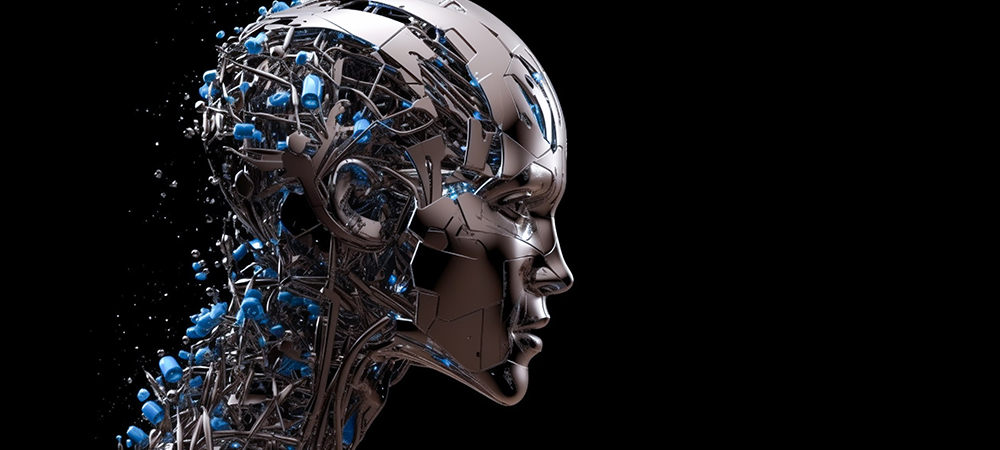Customers are looking to be more agile, which has led them to run workloads across multiple environments, whether public clouds, co-location facilities, data centres or at the edge, leaving IT teams grappling with complexity says Alexandre Brousse at Dell Technologies.
Describe your current job role and a summary of the business model of your organisation?
One of our most enduring advantages as a company is the strength of our channel community. In Q2 FY24, the partners contributed approximately 50% of the company’s net revenue globally and drove over 65 percent of all new and reactivated buyers in EMEA.
Alex is responsible for overseeing Dell’s entire channel and distribution business in Europe, Middle East, and Africa. His number one focus is to support our partners in increasing their overall revenue, driving new client acquisition, creating new businesses, and assisting them on the digital transformation journeys of their customers.
What are your strengths and abilities that you bring to the above role?
Alex has been working with channel partners and distributors for over 15 years, engaging in numerous projects that span all stages of customers’ digital transformation journeys. During this time, he has met with hundreds of partners in the field.
His extensive knowledge encompasses the indirect sales ecosystem, channel programming, sales strategies and conflict management. Alex’s experience with partners of various sizes and from diverse geographical locations is a valued aspect of his expertise, enriching his understanding of global market dynamics.
Please describe the opportunities and challenges that exist for channel partners in your market?
The digital landscape is currently expanding at the fastest pace in history – and it will never slow down. When considering all aspects of organisations’ digital architectures – from multicloud environments, through their EDGE and security setups, to emerging AI installations – data serves as their primary fuel.
What is happening today is unprecedented: the explosion of data is meeting intelligent infrastructure, software, and algorithms, rapidly transforming it into actionable insight. A symbiotic relationship exists between the advanced, connected technologies being deployed and the wealth of new data waiting to be used.
In today’s competitive business environment, customers are always looking to be faster and more agile. This desire to move faster has led companies to run applications and workloads across multiple environments, be it multiple public clouds, co-lo facilities, in their own data centres or at the edge. This often leaves IT teams grappling with increased operational complexity.
This in turn, leads to challenges like unpredictable costs, challenges with workload interoperability, skills gaps between teams and disagreements on where applications should reside. All of this slows down decision making, could introduce security risks and stops companies from achieving the IT agility they sought out in the first place.
In addition, many organisations inherit multiple ecosystems via mergers and acquisitions, shadow IT and legacy environments that need to be managed and maintained. There is an opportunity here for the channel partners to assist their customers in responding to these challenges.

Which technologies and innovations can make a difference to the channel market dynamics in the near future?
Apart from data management, the least surprising, but most accurate answer here is cybersecurity and artificial intelligence. These two elements not only have significant implications for the channel but are also rapidly reshaping the way we live and work.
Those partners that are looking to be effective in the market, will need to be able to help customers run AI workloads anywhere they need them and scale AI from proof of concept to production. The choice of a preferred vendor will also influence the race to become GenAI-ready quickly—Dell currently boasts the world’s broadest GenAI solutions portfolio, spanning from desktop to data centre to cloud.
GenAI also represents a significant turning point for cybersecurity. It can be a partner in protecting IT environments while at the same time be used to create new attack vectors. As its capabilities expand, hackers can use the speed and automation in which GenAI works, uncovering vulnerabilities faster, evolving malware in real-time, and building better phishing emails and digital spoofing.
GenAI systems require proper security measures to help from becoming the target of attacks. Building skill and resources here will create an enormous competitive advantage for any partner willing to take the challenge.
How can a channel partner disrupt the regional market and gain a leading competitive position?
In this new decade that we call the data decade, organisations with comprehensive data management and protection capabilities across their multi-platform and multi-cloud environments, need to be prepared to effectively mitigate risks, accelerate innovation, lower costs, and optimise their business outcomes.
If you think about the entire business-to-business relationship, especially for new workloads, such as GenAI, there are several important stages of any implementation – finding and sharing use cases, data preparation, defining the right scope and solutions and finally – implementation and support.
Today, most partners specialise in one, perhaps two of these stages. The ones that will get the resources and skill to run the process end-to-end, will truly be able to disrupt the market.
Which aspects of your job role do you find rewarding and which challenging?
Coming from a family of entrepreneurs himself, Alex finds that helping businesses, both customers’ and partners,’ grow is one of the most rewarding aspects of his work. The biggest challenge that comes with the position for him is managing the diversity of the channel landscape he works with, strategies that work in one part of the world, do not necessarily work in another. Every problem requires a tailor-made solution.
How do you best like to de-stress and re-charge off work?
Alex finds relaxation in spending time with friends and family, engaging in activities such as cooking, playing padel, and completing DIY projects.





